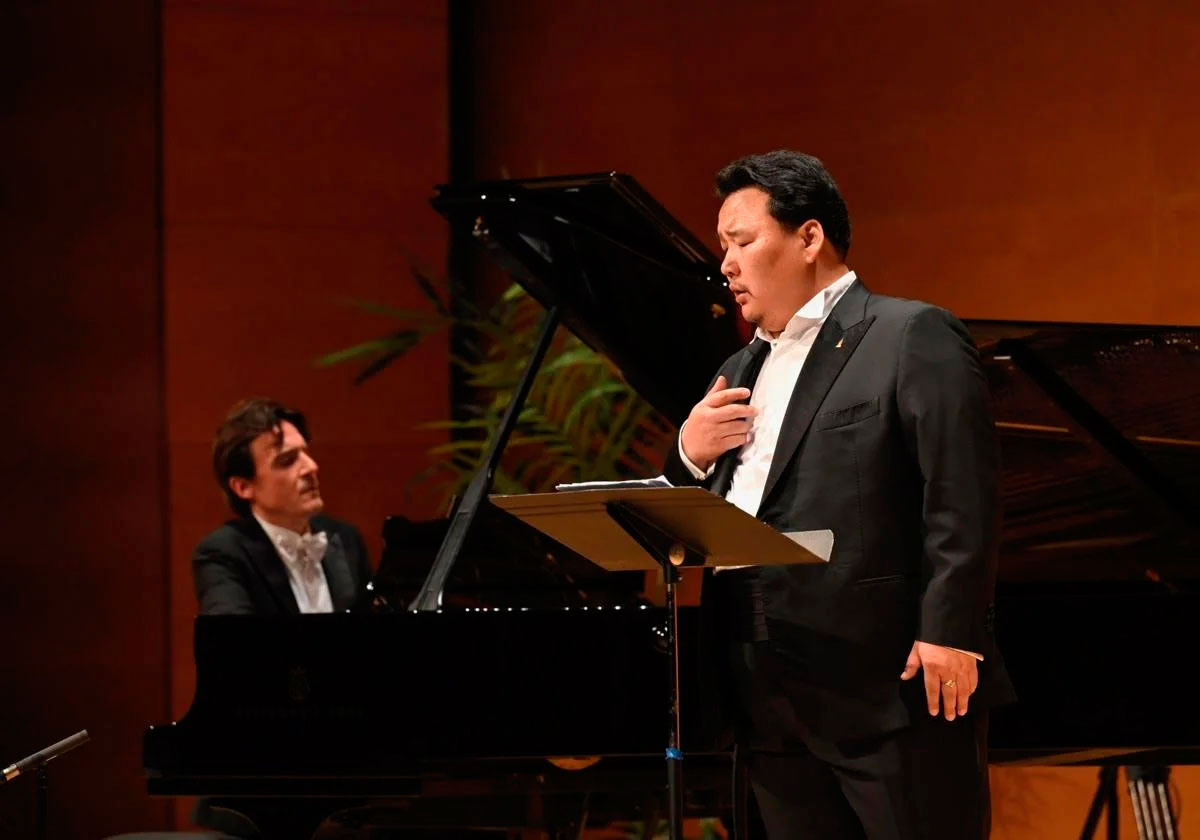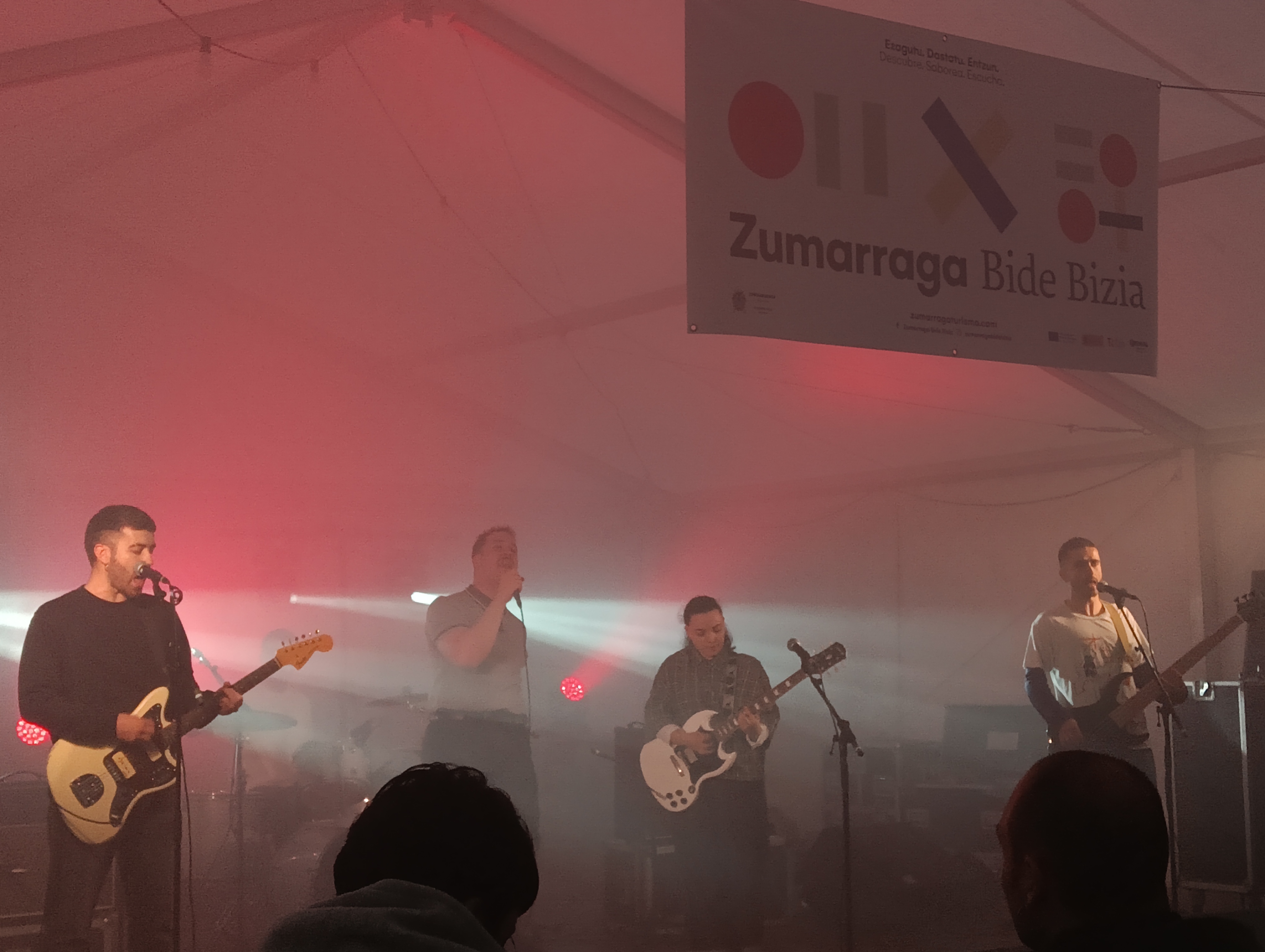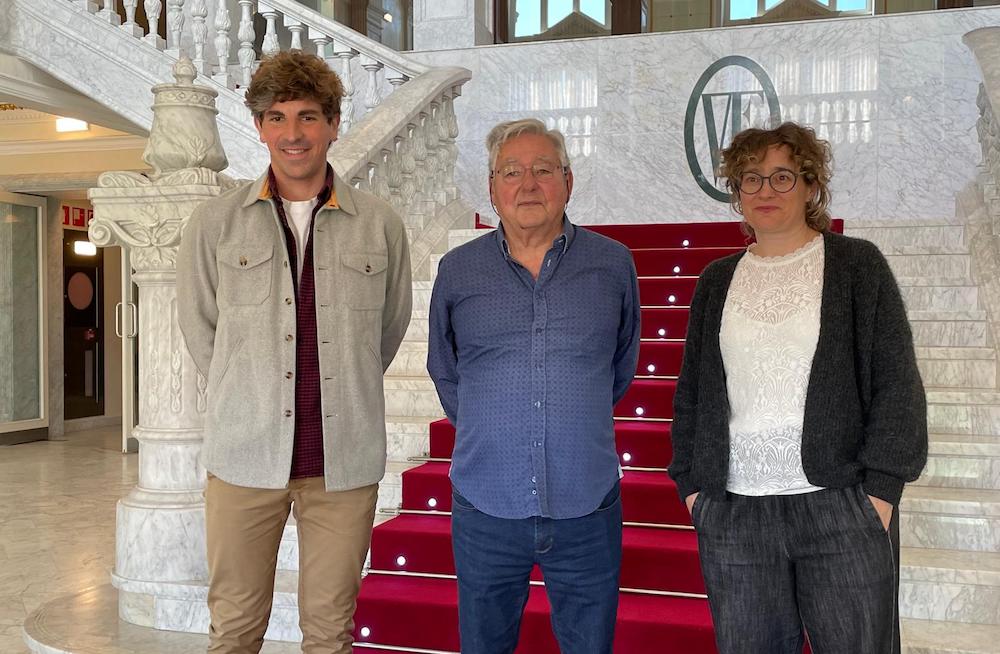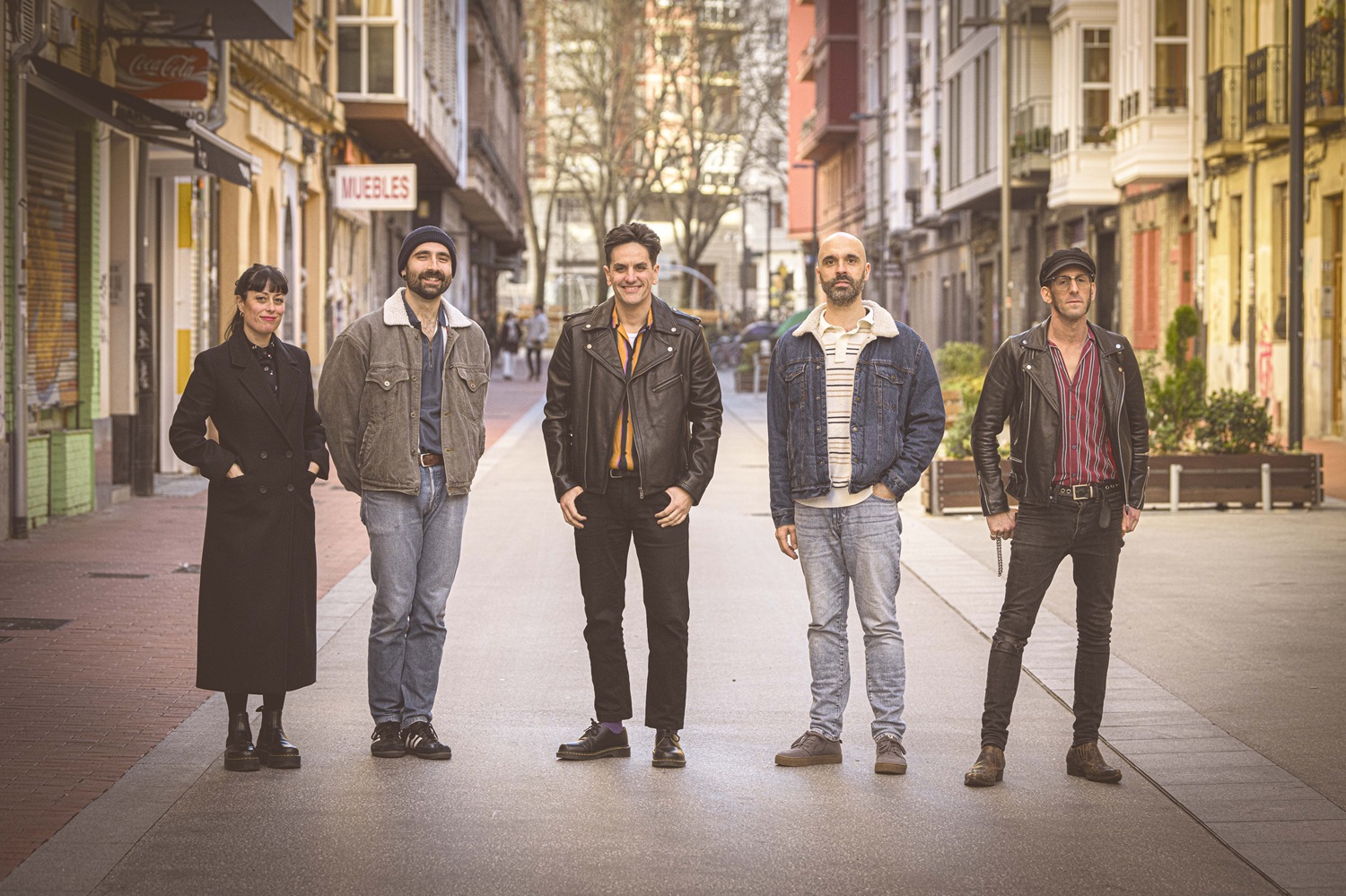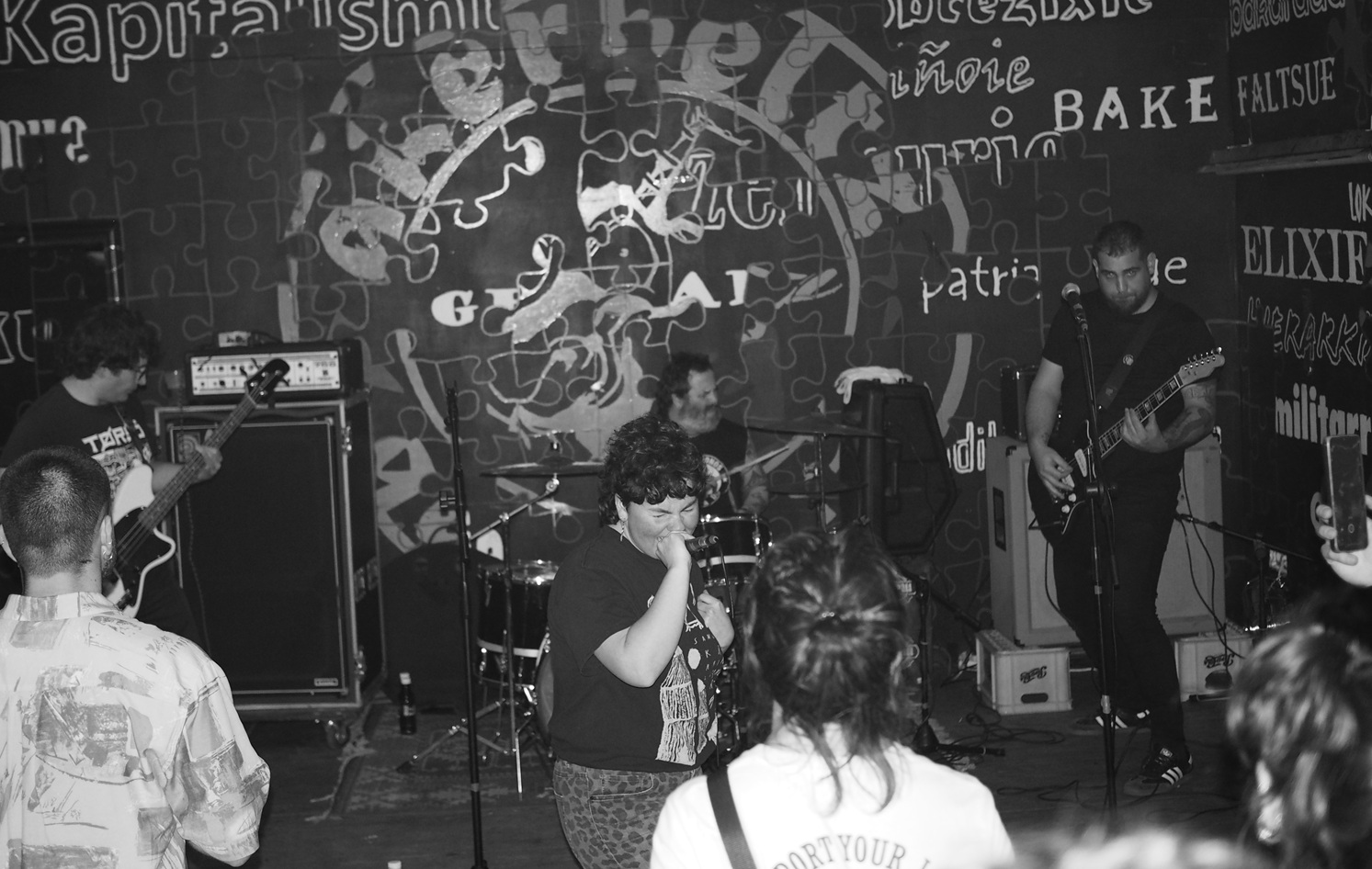“Women don’t need to be super good at making music”
Baztan's Madame Birrots group is made up of women, and they say that in scenarios that men don't have, there's a demand. They speak from a rural perspective and from a feminist perspective.

Madame Birrots has a powerful sound. They're powerful. They started making versions and ended up with their own album (at the moment). Nine songs, crossed by politics, because everything is political: women who are not as they should be, invitations to organization, subtle criticism of capitalism (or not so much)...
And musicians who are songs in Euskera and all women: Kattalin Ezkerra Sobrino, voice and pandereta; Izargi Zumarraga Etxandi, electric guitar and choirs; Alazne Untxalo, king, drums and choirs; Uhaina Apezetxe Murua, acoustic guitar and choirs; and Eneritz Mitxelena Irazoki, cello. A declaration of intent. We talked to singer Kattalin Ezkerra.
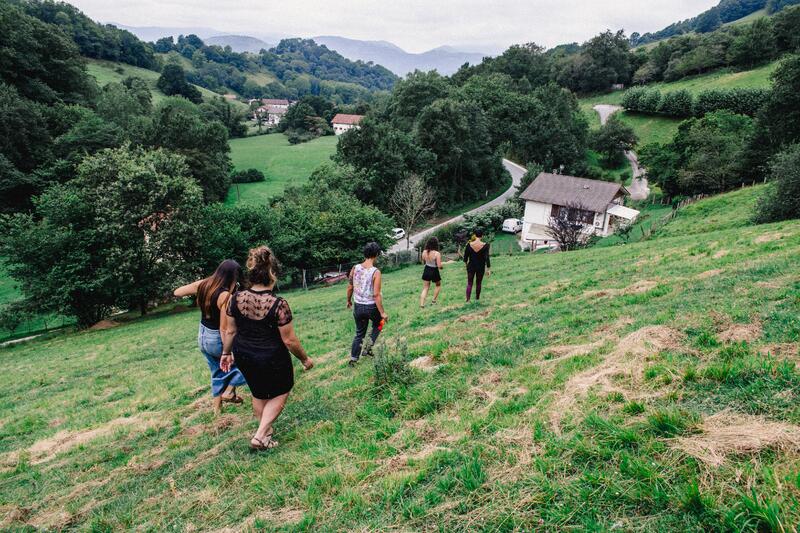
How was Madame Birrots born?
"We five have not managed to work and live in Baztan and have therefore clearly influenced our creative process."
Madame Birrots is born because we have a friend named Idoia Gillenea. He already has a restaurant between Erratzu and Baigorri and on the occasion of 8 March he proposed to meet us and make some versions to give a concert there. Normally because that day we got together some spontaneously and started singing. We had to give that concert on March 14. And we went right into the pandemic, it was the year 2020, and we didn't give that concert. But the lockdown created us a desire and a desire to do and create things. So, when we started to get out of the lockdown. We had a couple of concerts around us and people called us to give concerts and we went on. Meanwhile, we also started creating our own songs and defining the components of the group.
And his name? Why Madame Birrots?
It has two reasons. First: the name of our first own song; Birrotxak. The manifesto of Mari Luz Esteban is the first poem we have taken from the book Andrezaharraren manifestua (The manifesto of Mari Luz Esteban). It means an older woman or an older girl. On the other hand, because we started making versions, “we reinvented sounds.” That's why. And "madame" -- well, because we liked that sonority.
Catalan poet Maria-Mercè Marçal said that she was three times rebellious: for being a woman, a worker and an oppressed nation. It seems to me that the lyrics of your songs combine these three elements. To what extent do they feel the need to express these axes of oppression?
We express this in our group on the use of language as an oppressed nation or oppressed people. That is, we were clear that we wanted to sing in Euskera. That is, our words would be in Basque. So, yes, there is a choice that is consciously made. The awareness of the nature of the oppressed people is a prior exercise that we carry out. The second would be the oppression that we live by being women. Our team is an exercise feminista.En the letters show the situations that it means to be a woman or the way in which we and we are women, thanks to the feminism in which we met or in which we relate. I think in the letters that is quite clear. And the third is class, because that's our relationship, because it's working class.
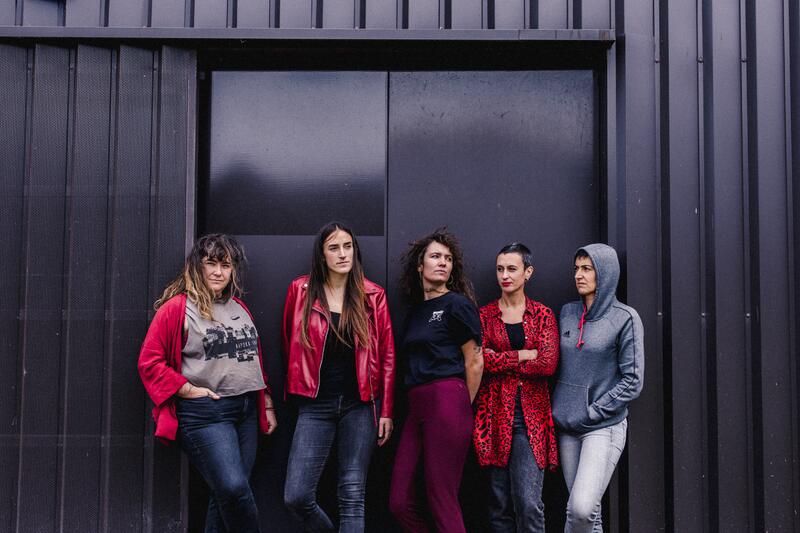
I think the place of creation is more important than we think. Urban or rustic, as well as the province of the Basque Country. Where do you believe and how does your music affect?
We are baztans, Navarros and rural. One way that affects you may be slowness. We've taken a long time to create our songs and our record, and I think one of those responsible for that is the journey that we have to make to do paid work. In other words, some of us have to go to work outside the field and that leads to more difficulties in getting together. We five have not managed to work and live in Baztan and therefore have had a clear influence on our creative process. And then, in our words or in the way we understand our music, I would say that, albeit unintentionally, we drink from folklore, from the Basque tradition. And that also has to do with the territory in which we live, because here the Basque oral song is still alive, albeit fairly humble, but it has arrived, and I think it is reflected in my own song. If I were out of Bilbao I probably wouldn't have that kind of singing. And our Basque, the Basque of our songs, is the Basque of here, not everywhere, but most of the times the words are in baztans, so that also influences.
Raimundo the Canastero said in an interview that they did not know any girl for their team in the surroundings of Estella or Pamplona. You are five women. Has it cost you to find yourself?
He hasn't found them because he hasn't searched them! It has not cost us anything to find ourselves and think about it, Baztan has 8,000 inhabitants and Estella is much bigger. That is an excuse, as always. They fill their arguments as an excuse to legitimize what they do. There's no compelling reason, if you wanted to do it.
Are there women in the Basque music scene, or are there a lack of programmers to take them into account?
"It is much harder to get on a stage with the condition of being a woman or having a non-normative body. It will criticize more how we play the instruments, how we sing, what body we have, how we move, how we dress..."
It is clear that there is a lack of programmers to take women into account or that they are so far missing. However, I would say that this oppression is making itself visible and, consequently, I believe that we are seeing the beginning of change. More and more women are at the heart of the Basque music scene. However, I would say that we women demand more or less that we get on the stage or take a seat or stand in front of us. And that's also Madame Birrots: One way to say, we're not perfect, we're not great musicians. And what? We don't need to be super good at making music. We can be mediocre. I think we have to believe that claim. Because it's much harder to rise to a stage as a woman or having a non-normative body. It will criticize more how we play the instruments, how we sing, what body we have, how we move, how we dress... and all of that affects us a lot, it costs us more to take it out, to take that step. We therefore have too much criticism of ourselves. I mean, we have the cysheteropatriarchy stuck inside. So, I would say two things: that the ones that are there are not visible and that those who are more difficult to be because of the oppression that we are experiencing.
"Well, I don't completely agree with this. Madame Birrots is very well heard.
It is because of this oppression that we do not value ourselves.

Upcoming concerts by Madame Birrots:
-13 December in Arizkun, Gamioxarre (Baztan). 19:00.
-On January 18 in Bera, Hostel Kataku.
-28 February, in Burlada, in the Axular Society.
-On April 4, in Villabona, in the Sahrijai district.
BRN + Neighborhood and Sain Mountain + Odei + Monsieur le crepe and Muxker
What: The harvest party.
When: May 2nd.
In which: In the Bilborock Room.
---------------------------------------------------------
The seeds sown need water, light and time to germinate. Nature has... [+]
Amartuvshin Enkhbat baritonoa
Pianoan: Stefano Salvatori.
Antolatzailea: OLBE.
Zer: Verdi, Mascagni, Leoncavallo eta Giordanoren operen ariak.
Non: Bilboko Euskalduna Jauregian.
Noiz: martxoaren 29an.
Aramu + AimarZ
When: April 26.
In which: The Zumarraga Open Field.
---------------------------------------------------------
The website of the City Council says: "The tourist brand Viva Viva and the festival of the same name are designed to show the world the soul of... [+]
Transparent Beings
When: April 20th.
In which: In the Plaza of the Castle of Pamplona.
-----------------------------------------------
The concert is only half an hour away in the Plaza del Castillo de Pamplona; but it is still half empty, because it is raining. Whether... [+]
Obduction of Amenaza / Zirt Zart (Split-ep)
2024
---------------------------------------------------
The musical panorama is gigantic, impassable. Among them there are a few large groups that absorb all the foci; many others that are dedicated to the pursuit of it, and... [+]
Aposapo + Mäte + Daño Dolor
When: April 5th.
In which: In the Youth Center of Markina-Xemein.
---------------------------------------------------------
I’ve made my way to the cheese house with the shopping cart full of vegetables, and we’ve spent the evening cutting... [+]
Poliorkêtês
Kerobia
Autoekoiztua, 2025
--------------------------------------------------------
Azken aldian, lerrootan asko nabil hausnartzen musikak izan beharko lukeen “misio historikoaz” eta abarrez. Eta, nolabait, zer egin beharko lukeen... [+]
On March 7, the 150th anniversary of the birth of Maurice Ravel, the best Basque composer of all time. And in LA LUZ a tribute was paid to this composer, recalling the influence of the famous Bolero on the collective imagination.
By chance, Deutsche Grammophon has just released... [+]










.jpg)

